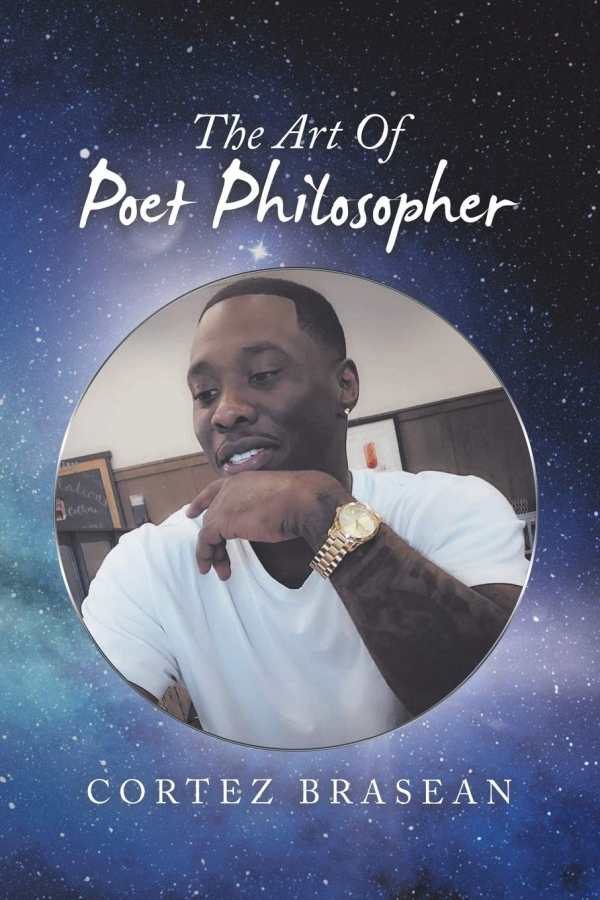The Art of Poet Philosopher
Its style singular, the exuberant collection The Art of Poet Philosopher concerns righteousness, and its expressions captivate the senses.
Concerned with virtuosity, Cortez Brasean’s semiautobiographical collection The Art of Poet Philosopher orates struggles and redemption in and beyond a weed-dealing world.
The book includes three related short stories divided by Brasean’s own philosophies, poems, and spoken word pieces. Together, the pieces function as a moral map through street culture, with the goal of mentoring those who are caught in “illegitimate” cycles of destruction and showing them a better way forward.
The short stories center around Ceasar and Ahmir, high-rolling step brothers who sell weed. The first story follows Ahmir around town as he acquires payments and a haircut. As he longs to get back to his fiancée, Shanti, the routine errands take a wrong turn.
The second story begins with Ceasar courting the beautiful Amari. She agrees to a double date with Ahmir and Shanti, and the foursome spend a night as VIPs in a club as Ceasar rolls out the red carpet treatment. Then, in a final chapter titled “..€…”, the point of view shifts from Ceasar to Ahmir, with a hiccup where Shanti makes love to Ceasar instead of Ahmir. With several loud knocks at the door, Ahmir is surprised by cops and decides to run, hide out, seek help from friends, and acquire money.
Intermissions feature poignant philosophies about greatness, deception, and the struggles of class and race. These messages are collected and presented in short sentences and paragraphs; each sentence is a stand-alone statement. Such messages are enhanced by poems whose rhymes and rhythms are beat-esque and melodic. They are free verse, conversational pieces that are passionate in describing love and character building. Two such pieces, “Inevitable Love” and “Stranger Than Most,” echo the same conversation by sharing six identical lines framed in similar ways.
Sex scenes appear in all three stories and most of the poems, led by men speakers who focus on the beauty and power of the women they’re with. Sweet metaphors pique the imagination, including of honey pots and nectarous juices, while physical expressions balance on an edge between gentility and force.
In the collection, the “Revealing of Spoken Words” section stands out; it is the finality of Brasean’s expedition. Preaching the power of God to those at low points, he issues a call for reformation: “We as people of many nations must unite, build, uplift and encourage our sisters and brothers.” Hard-hitting truths and important reminders about morals and maintaining perspective arise in the section’s criticisms of the current climate of the world. However, throughout the book come misspellings and punctuation errors. Further, the omission of paragraphs in the short stories, along with their thick colloquialisms, make it difficult to follow transfers from scene to scene.
Its style singular, the exuberant collection The Art of Poet Philosopher concerns righteousness, and its expressions captivate the senses.
Reviewed by
Samantha Ann Ehle
Disclosure: This article is not an endorsement, but a review. The publisher of this book provided free copies of the book and paid a small fee to have their book reviewed by a professional reviewer. Foreword Reviews and Clarion Reviews make no guarantee that the publisher will receive a positive review. Foreword Magazine, Inc. is disclosing this in accordance with the Federal Trade Commission’s 16 CFR, Part 255.

